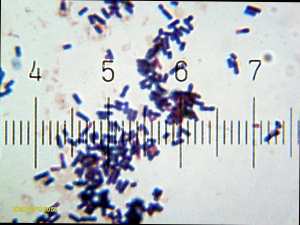
Welcome! Click on a tab below to find books, articles, and websites for use in this course.
You'll need a College of DuPage Library card in order to use most of the resources below from off campus. If your card is not working, it may need to be reactivated.
Questions? Feel free to use my contact info to the right, stop by the Reference Desk, or contact us by email or chat
Finding (and Narrowing) a Topic
Have a glimmer of a topic that you'd like to work on? Great! You'll want to work to narrow that topic a bit before you dive into the catalog and databases, or you will be swamped with results. You can try the following strategies to narrow a topic:
- Visit CQ Researcher, a library database that summarizes current events into massive PDFs.
- Gale Virtual Reference Library has got great entries on many of your topics.
- A Google news search can give you headlines from around the world on topics like GMOs and danger.
Finding Articles in Databases
Newspaper Databases
National Newspapers Core contains the full text of the Chicago Tribune, New York Times, Washington Post, and many others. It's worth using this database to look for Level 2 sources for your project.
Academic Search Complete also contains newspaper citations and the full-text of many magazines and trade publications.
Scholarly Article Databases
Scientific research can be best found in academic databases. Here are the top two databases to look for scholarly articles for this project.
Academic Search Complete also has a number of scholarly articles on scientific subjects. You'll want to be sure that you're using a source appropriate for the assignment when searching.
Science Direct has a large number of scholarly articles that may be helpful for your project.
See the full list of biology databases.
Evaluating Websites
While you're doing Google searches to either narrow your topic or in order to dig up more information on certain subject, you want to be careful to decide if the information you find is trustworthy.
When it comes to science, nearly everyone has opinions: should we be labeling genetically modified food for consumer's awareness? What will fracking do for our economy or our groundwater supply? Your job is to evaluate the information you can find through Google and Bing to find the good websites--those written by authors you can trust, with good and up-to-date information.
Authorship: Who created this website? What is their background on the topic? Are they trustworthy?
Bias: Why was the website created? What point of view does the author have? Does that limit the facts they present or how the facts are presented?
Date: How old is the information that is presented? Is it still accurate?
Questions? Check out the COD Library's guide to evaluating information.
Class Exercise
Take a moment to look at your website. Is this information trustworthy? How do you know? Be prepared to tell your classmates your opinion.
Do Probiotics Really Work?
Probiotics Guide: Benefits, Foods, Supplements
Do I need to include probiotics and prebiotics in my diet?
Probiotics: In Depth
Using MLA or APA Style
Find directions about how to cite your sources on the library citation guide.
Most databases will have a Cite link that you can also click to get article citations.
Finally, you are welcome to use NoodleBib if you'd like to use a program to create and organize your citations. You must "Create a New Folder" when you use NoodleBIB for the first time. Click on "I am citing a(n):," choose the type of item you are citing, and then fill in the online form. Your bibliography will be formatted for you.
Further questions about MLA or APA style? Purdue OWL has great MLA and APA citation guides.